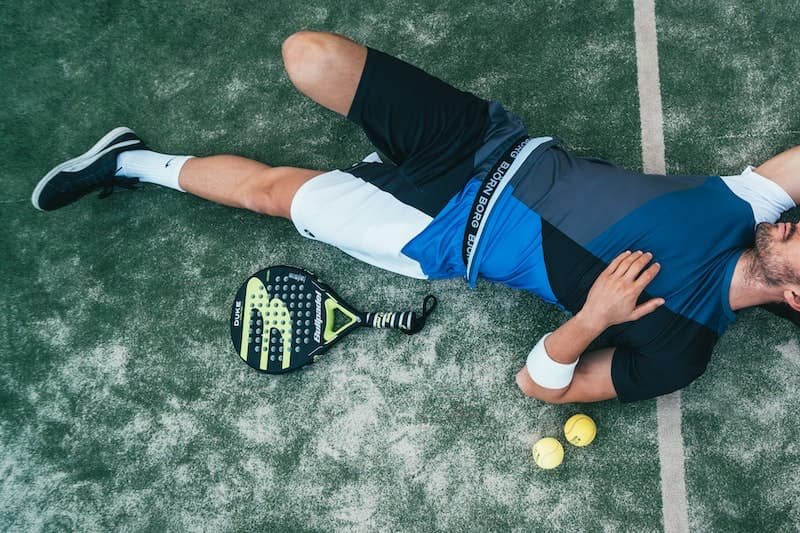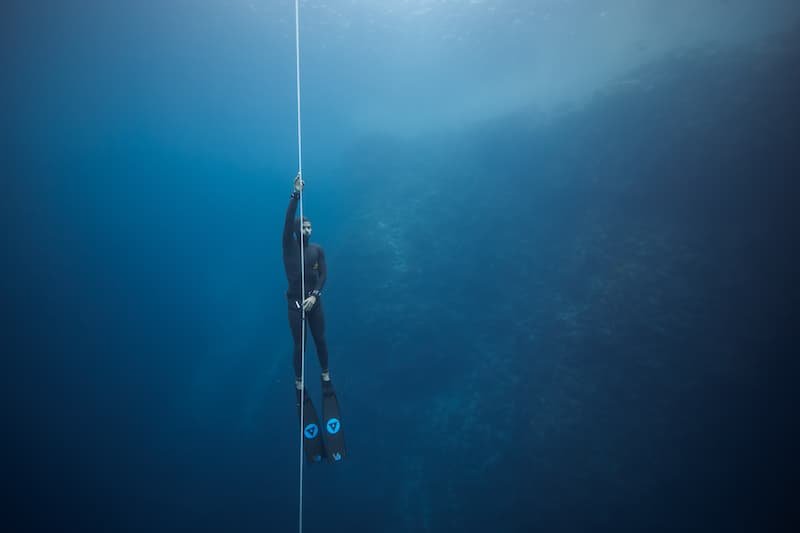
 Olivia Møller
Freediver - Activist - Explorer
Olivia Møller
Freediver - Activist - Explorer

 Olivia Møller
Freediver - Activist - Explorer
Olivia Møller
Freediver - Activist - Explorer
Sleep is a critical aspect of human life, yet its importance for athletes often goes underestimated. The world of sports is an arena where even the slightest edge can make the difference between victory and defeat. Sleep, the great equalizer, has a profound impact on an athlete's body, mind, and performance. In this article, we will explore the multifaceted relationship between sleep and athletic success, drawing upon research findings and expert opinions to shed light on how sleep affects an athlete's physiology, psychology, and overall performance.
The restorative benefits of sleep have been well-documented. Athletes need adequate sleep to function optimally, as it is during sleep that the body undertakes essential processes of recovery and repair. Studies have consistently shown that insufficient sleep can negatively impact an athlete's performance.
In terms of physical performance, sleep plays a pivotal role. It's during sleep that the body undergoes crucial physiological processes to optimize physical abilities. A study published in the Journal of Clinical Sleep Medicine found that athletes who slept for less than 7 hours per night were more likely to sustain injuries than those who slept for 9 or more hours. This highlights the direct correlation between sleep duration and the risk of injuries in athletes.

Moreover, the body's capacity for muscle recovery and repair is profoundly influenced by sleep. During slow-wave sleep (deep sleep), growth hormone is released, which is crucial for tissue healing and muscle development. This hormone stimulates the growth and repair of muscles, allowing athletes to recuperate from strenuous training and competition. Dr. James Maas, a leading sleep expert, emphasizes the importance of deep sleep, stating that "The primary time for growth hormone release in the body is during deep sleep, and this is essential for muscle development." Inadequate sleep can disrupt this process, impairing muscle recovery and ultimately hindering an athlete's overall performance.
Cognitive function is another area profoundly affected by sleep. The mental aspects of athletic performance, including decision-making, reaction time, and focus, are highly reliant on a well-rested mind. Sleep deprivation can impair an athlete's cognitive abilities, causing slower reaction times and poor decision-making. Dr. Charli Sargent, a sports psychologist, underscores the importance of sleep in this regard, noting that "Sleep is integral to decision-making processes, like reading the game and strategizing effectively." Athletes who get insufficient sleep are at a disadvantage, particularly in situations requiring quick thinking and adaptability.

Not only does sleep influence an athlete's physical and cognitive abilities, but it also plays a vital role in maintaining emotional and mental well-being. The pressures of competition and the demands of training can take a toll on an athlete's mental state. Sleep is a crucial factor in emotional regulation, enhancing an athlete's ability to cope with stress and anxiety. Dr. Michael Grandner, Director of the Sleep and Health Research Program at the University of Arizona, emphasizes that "Sleep is linked to emotional regulation, and an athlete's ability to handle pressure situations." In high-stress sports, mental resilience can be a decisive factor in an athlete's success.
While the relationship between sleep and traditional athletics is well-established, it's worth noting that the importance of sleep is not confined to these sports alone. Even in the context of extreme and specialized disciplines like freediving, sleep plays a crucial role.
In freediving, oxygen efficiency is paramount. The ability to optimize oxygen usage is directly linked to performance. Sleep plays a fundamental role in improving lung capacity and the body's capacity to utilize oxygen effectively. During sleep, the body repairs and rejuvenates, enhancing lung function, which can be a game-changer for freedivers. A well-rested body can endure extended breath-holds, a key requirement for this sport where every second counts.
Furthermore, freediving demands unwavering concentration and composure. The psychological demands of freediving are profound, as divers must navigate an underwater world with its unique set of challenges, from the pressure of deep dives to encounters with marine life. In this high-pressure environment, cognitive clarity and focus are non-negotiable. Sleep deprivation can impair an athlete's cognitive capabilities, leading to lapses in judgment and potentially fatal errors during a dive. Dr. Richard Moon, a sleep medicine specialist, emphasizes, "In the high-pressure world of freediving, mental clarity and focus are non-negotiable. Sleep is the foundation upon which these mental attributes rest."

Freediving's unique combination of physical and mental demands further underscores the importance of sleep for athletes in this discipline. A well-rested body not only improves oxygen efficiency but also enhances mental resilience. The psychological strength required for freediving extends beyond focus to encompass composure in the face of potential dangers and the ability to adapt to unpredictable underwater situations.
Lastly, sleep's significance in freediving extends to safety. Fatigue increases the risk of a shallow water blackout, a potentially life-threatening condition among freedivers. Adequate sleep ensures that divers are alert and better equipped to make life-saving decisions in critical moments, reducing the risk of accidents.
In conclusion, sleep is the cornerstone of athletic success, affecting an athlete's physical capabilities, cognitive function, and emotional well-being. It's a natural and legal performance enhancer, as highlighted by Nanci Guest. Furthermore, the significance of sleep is not limited to traditional sports; it holds true for extreme sports like freediving. Sleep impacts oxygen efficiency, cognitive focus, and safety in the high-pressure world of freediving.
The lessons learned from the relationship between sleep and athletic performance can be applied to various sports, emphasizing the importance of a good night's sleep for athletes of all disciplines. As Thomas Dekker wisely said, "Sleep is that golden chain that ties health and our bodies together," and it's a chain that every athlete should cherish.